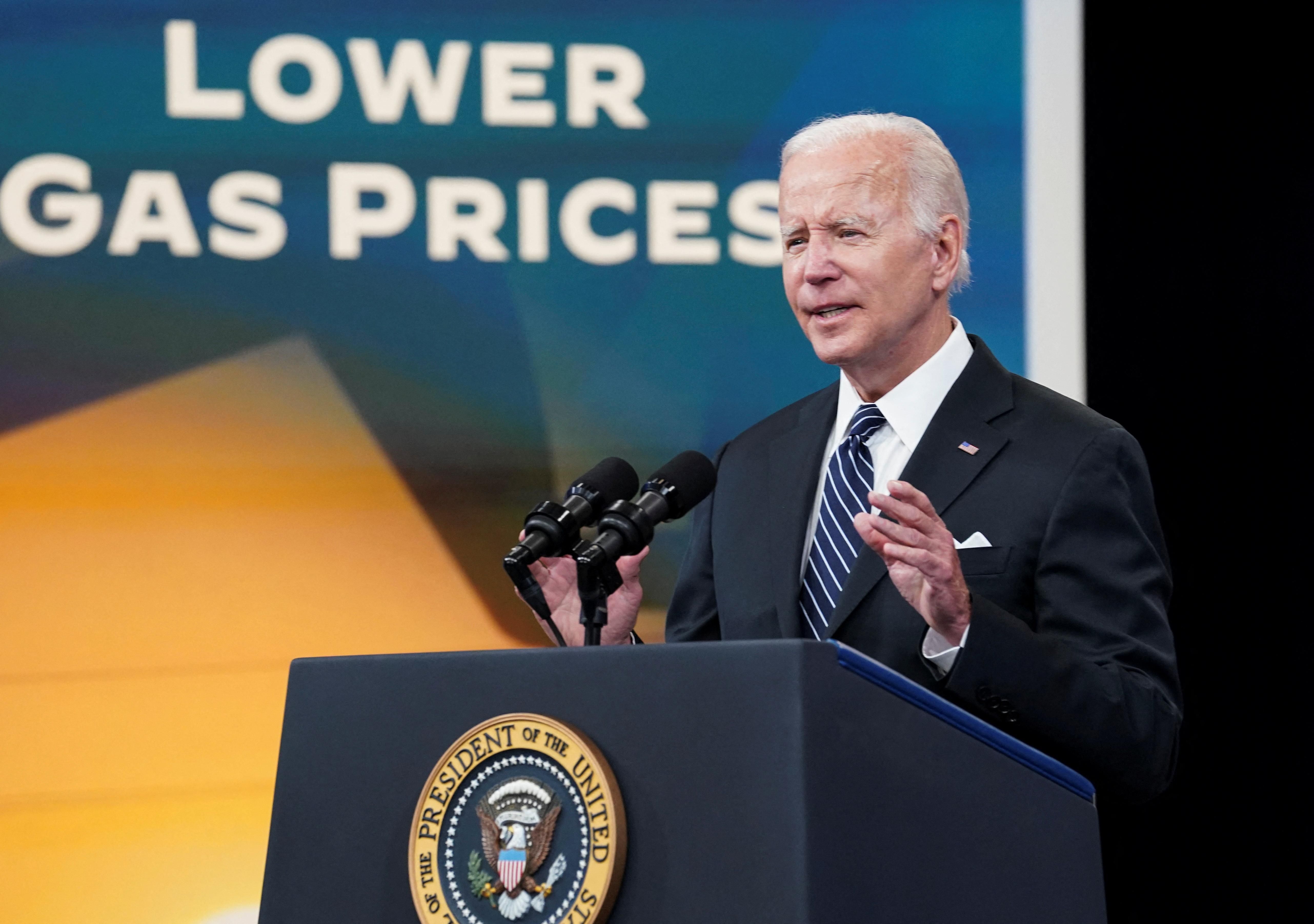What We're Watching: Biden's gas tax holiday plan, deadly quake in Afghanistan, Italy's Five Star party woes
Biden’s gas tax holiday fuels tepid response
In a bid to address rising gas prices at home, President Joe Biden on Wednesday called for a gas tax holiday that would lift federal taxes on gas and diesel for the next three months. The move aims to show that the White House is taking the plight of Americans seriously after gas prices topped a whopping $5 a gallon last week. But Congress is unlikely to approve the suspension. Even Democrats – including House Speaker Nancy Pelosi – have canned the idea, saying that it is tokenistic because lifting federal taxes (18 cents per gallon) will barely move the needle, and that any small gains will be made by … oil companies. Critics also say that it won't have a significant impact on the base price of gas, with all taxes on average (state and federal) accounting for just 12% of the overall price. Indeed, this is the latest (desperate) attempt by the Biden administration to tackle the rising cost of living that is pummeling working-class Americans and contributing to his cratering poll numbers ahead of November’s midterm elections. The next step? In July, Biden will travel to Saudi Arabia to try and get Crown Prince Mohammed bin Salman to pump more oil.
Earthquake rocks Afghanistan
A 5.9-magnitude earthquake struck eastern Afghanistan early Wednesday morning, killing at least 1,000 people. The quake, the country’s deadliest in 20 years, adds to the long list of challenges facing the Taliban government, which has ruled since the internationally backed government fell apart in the wake of the US military withdrawal last August. Impoverished and largely cut off from the global financial system because of US sanctions and other punitive measures against the Taliban, the war-wracked country is already mired in a deepening humanitarian crisis, made worse by the Taliban’s combination of fundamentalist ideology and practical inexperience. The Taliban has appealed to the international community for help in the wake of the deadly tremor. The UN, which has faced funding shortfalls for its work in Afghanistan, is already on site. The US, which has funneled more than $700 million in aid to Afghanistan since August and is pressuring the Taliban to reverse its decision to limit girls’ access to education, says it is assessing how it might help the quake victims.
